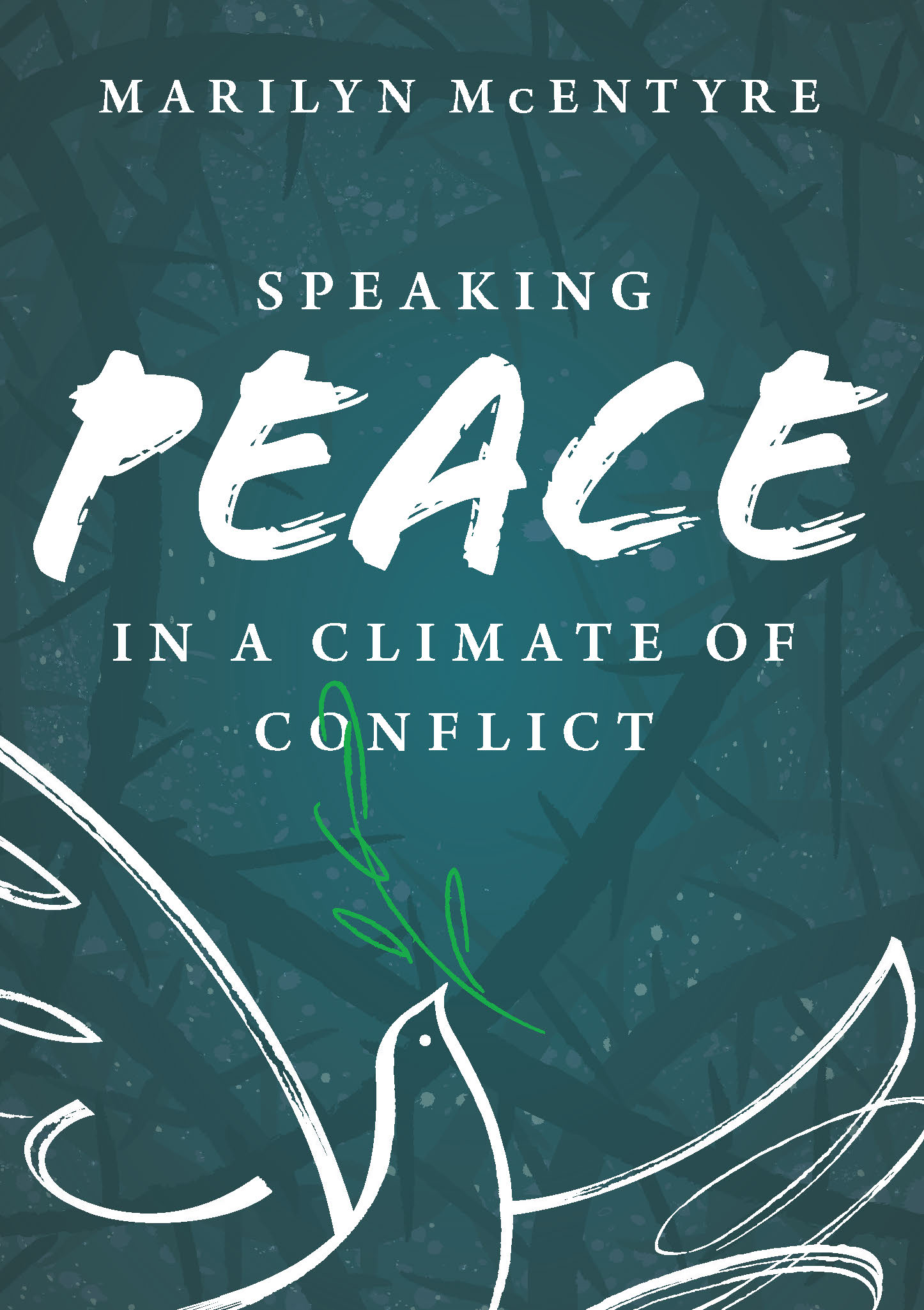What can we learn from contemporary writers about keeping public conversation compassionate, vigorous, faithful, and life-giving?Those who want to avoid simplistic partisan rhetoric and use words in a
What can we learn from contemporary writers about keeping public conversation compassionate, vigorous, faithful, and life-giving?
Those who want to avoid simplistic partisan rhetoric and use words in a challenging, spirited way need practical strategies. This book offers a range of them.
Drawing upon the work of exemplary contemporary writers, Speaking Peace in a Climate of Conflict shows how to speak and write clearly and generously. For example, we can attend more carefully to the effects of metaphors, recognize and avoid glib euphemisms, define terms in ways that retrieve core meanings and revitalize them, and enrich our sense of history by deft use of allusion.
Contemporary readers are awash in many words that have been cheapened and profaned. But with deliberate use of intelligence and grace we can redeem their “sacramentality”—humanely uttered words can convey life-giving clarity and compassion. Speaking Peace in a Climate of Conflict is an homage to outstanding wordsmiths who have achieved that potential and an invitation to follow them in making well-chosen words instruments of peace.
“Our democracy sometimes feels more like a dystopia. The constant name-calling, raft of conspiracy theories, outrageous lies, and steady stream of disinformation put us on the defensive and make honest and compassionate communication increasingly difficult. Written with her signature intelligence and poetic flair, Marilyn McEntyre’s compelling new book, Speaking Peace in a Climate of Conflict, shows us how we might reclaim the nobility of language and its power to heal. It could not come at a better moment.”
— Paula Huston
author of Simplifying the Soul: Lenten Practices to Renew Your Spirit
“It’s commonplace to lament the loss of civil discourse, but few do anything about it. For years, Marilyn McEntyre has been quietly shepherding us toward God’s intention of language as a gift rather than a weapon. She’s done it again. We need her brilliantly crafted words more than ever to show us again how to speak, live, and act in accord with the beautiful gospel.”
— Leslie Leyland Fields
author of Your Story Matters: Finding, Writing, and Living the Truth of Your Life
“I can hardly imagine a more timely book at a more urgent time! Marilyn McEntyre has given us a startling reflection on words, metaphors, and poetry and how they illuminate or obscure the wide realms of politics, culture, and community. It is a book that is profoundly literate, vividly relevant, and plainly wise. It manages the rare feat of demonstrating both soaring vision and precise focus. The reader is startled into fresh insights that invite deeper forms of service and care.”
— Leanne Van Dyk
Columbia Theological Seminary
View Review quote
Marilyn McEntyre is the award-winning author of several books on language and faith, including What's in a Phrase? Pausing Where Scripture Gives You Pause (winner of a Christianity Today 2015 book award in spirituality); Make a List: How a Simple Practice Can Change Our Lives and Open Our Hearts; Word by Word: A Daily Spiritual Practice; When Poets Pray; and Caring for Words in a Culture of Lies.
View Biographical note
Table of Contents
Introduction
1. Don’t Rely on Webster’s
2. Unmask Euphemisms
3. Remind People of What They Know
4. Embrace Your Allusive Impulses
5. Tell It “Slant”
6. Promote Poetry
7. Articulate Your Outrage
8. Find Facts and Check Them
9. Mind Your Metaphors
10. Complicate Matters
11. Laugh When You Can
12. Quit Trying to “Win”
Afterword
View Table of contents
